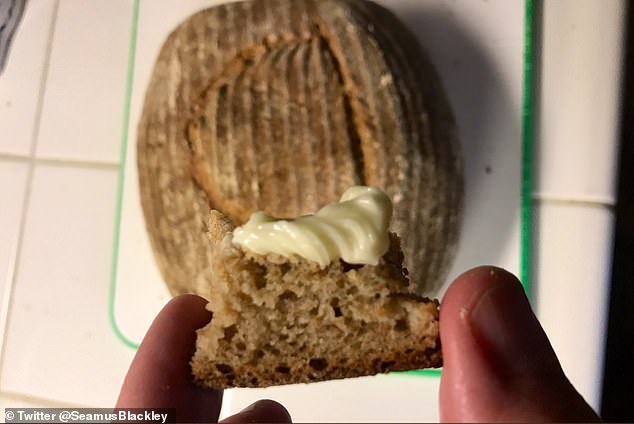
Scientist says he’s made bread from 4500-year-old Egyptian yeast

A scientist has said he used what could have been 4,500-year-old yeast from ancient Egypt to bake a loaf of sourdough bread.
Physicist Seamus Blackley, Egyptologist Serena Love and microbiologist Richard Bowman traveled to the U.S. and collected yeast samples from ancient Egyptian breadmaking pottery housed at the Boston Museum of Fine Arts and Harvard’s Peabody Museum.
In a process similar to fracking, the researchers pumped liquid into the clay and pulled out the yeast trapped within the pores of the clay.
He fed and cultured the ancient yeast grains for a week. On Monday, he put the yeast to work and baked a sourdough loaf, with a hieroglyphic carved into the final product.

“This crazy ancient dough fermented and rose beautifully,” Blackley posted on Twitter.
He also said the bread was light, airy, the aroma was richer and sweeter than most sourdough bread he’s eaten and most importantly, the bread tasted amazing!

Blackley said that researchers are doing DNA sequencing right now to verify the results, but the pottery they got the yeast from was 4,500 years old. However, until they get the sampling back, they won’t know for sure that the yeast wasn’t contaminated by other, less ancient strains.






